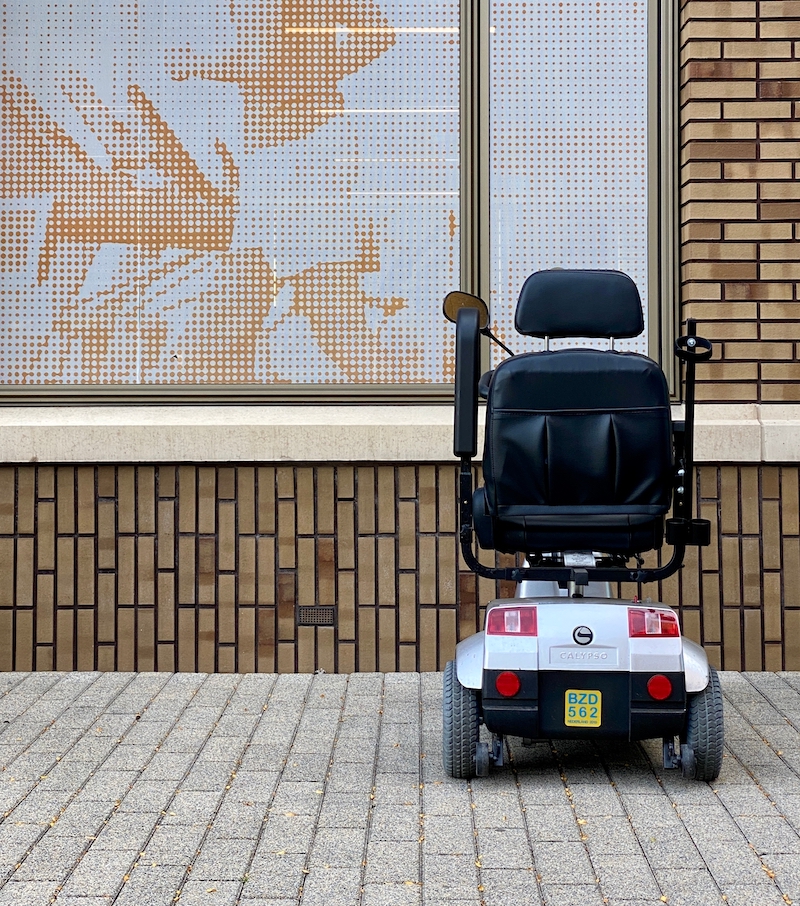
What is the Client Assistance Program (CAP)?
CAP is one of Disability Rights Michigan’s federally funded programs. It is designed to assist individuals with disabilities in understanding and using rehabilitation and independent living services. CAP was established under the federal Rehabilitation Act of 1973, as amended by the Workforce Innovation and Opportunity Act (WIOA) of 2014.
What is the Role of a CAP Advocate?
A CAP advocate can provide you with information, referral, and advocacy services if you are an individual with a disability having trouble getting vocational rehabilitation services from Michigan Rehabilitation Services (MRS), Bureau for Services of Blind Persons (BSBP), or Disability Networks/Centers for Independent Living (CIL). An advocate may:
- Advise people with disabilities of their rights under the Federal Rehabilitation Act of 1973, as amended WIOA and Title I of the Americans with Disabilities Act of 1990 (ADA).
- Explain the nature of the various services available to people with disabilities from the state vocational rehabilitation program and/or the state independent living centers.
- Refer people to other appropriate resources that can meet their needs.
- Advise and interpret agency policies and procedures to consumers, applicants or other stakeholders.
- Identify problems and solutions between clients and vocational rehabilitation staff.
- Advocate for and represent consumers in the appeals process if the complaint has merit and other attempts at resolving the issue have failed.
- Recognize service delivery problems and recommend positive changes in the rehabilitation program rules and policies.
- You have questions regarding the services available from a vocational rehabilitation or independent living program.
- You have been determined ineligible for services and you disagree with that decision.
- You are experiencing delays in receiving services.
What can I expect from a CAP advocate?
Once your case is accepted, CAP staff will gather facts, answer your questions, and evaluate the issue or issues. Staff will advise you of your options and discuss potential ways to resolve your problem. The advocate may then help you by:
- Negotiating services
- Resolving communication challenges
- Helping reach a compromise
- Attending a meeting with you
- Representing you at an appeal or hearing (note: if you want CAP’s assistance with a formal hearing, contact a CAP staff person BEFORE you file the request for hearing. The wording on the request for hearing may affect the outcome. If you do not contact CAP before you file an appeal, CAP staff may not be able to assist you)
- Helping you find other resources that you need
Case Examples

A person contacted DRM because she was having communication problems with her Michigan Rehabilitation Services (MRS) counselor. She also wanted to secure job development services.
The person’s counselor did not have a good understanding of her circumstances, as she was a refugee whose first language was not English.
DRM advocated for a new counselor and job development services and ultimately persuaded MRS to provide both.

Another person contacted DRM seeking assistance in working with her Michigan Rehabilitation Services (MRS) counselor to obtain a power wheelchair and a customized desk.
The client has multiple sclerosis and needed these items in order to continue to work. She had been waiting for approximately a year for these essential items to be provided. During a conference call with the client and MRS Counselor, the DRM advocate was able to negotiate to have the power chair and the desk incorporated into the client’s Individualized Plan for Employment (IPE).
Within a couple of weeks, the power chair was delivered to the client and the desk was being customized to fit her needs.

A third person contacted DRM seeking assistance to have Michigan Rehabilitation Services (MRS) sponsor her Master’s degree program.
This client had tried several times to meet with her counselor to update her employment goal, but her counselor did not feel that her chosen goal was appropriate due to the results of an outdated psychological evaluation that suggested that college was not a good fit for the client.
The DRM advocate discovered that the client successfully completed a Bachelor’s degree program and graduated with a 3.9 GPA. Following this discovery, the DRM advocate was able to convince the MRS counselor to work with the client to change the employment goal and sponsor her Master’s program.
How Can We Help?
Contact Us Anytime
We want to hear from you! Whether you're looking for advocacy, have a question, or just want to connect, please reach out.